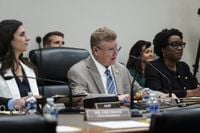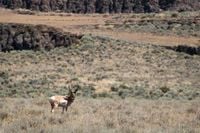Washington – In a move that has sparked outrage among Democrats and environmentalists, House Republicans in the Natural Resources Committee approved an amendment early Wednesday morning, May 7, 2025, that would facilitate the sale of hundreds of thousands of acres of protected federal land in Nevada and Utah. This controversial decision is part of a broader spending bill aimed at raising revenue to support tax cuts for the wealthiest Americans.
The amendment, spearheaded by Republican Representatives Mark Amodei of Nevada and Celeste Maloy of Utah, was approved by a vote of 26-17, with one Democratic representative, Adam Gray of California, breaking ranks to support the measure. Critics argue that the land sales could lead to increased drilling, mining, and logging in sensitive areas, undermining environmental protections.
According to the proposal, up to 200,000 acres in Clark County, Nevada, which includes Las Vegas, could be sold at fair market value to local governments. This land sale is less than 1% of the 50 million acres of federal land in Nevada. The plan also includes approximately 350,000 acres in Pershing County, which Amodei has advocated for selling or exchanging to mining companies.
Senator Catherine Cortez Masto of Nevada condemned the amendment, calling it "a land grab to fund Republicans’ billionaire giveaway tax bill." She expressed concern over the potential impacts on water conservation and public schools in Nevada, stating, "In the dead of night, Representative Mark Amodei pushed House Republicans to move forward with an insane plan that cuts funding from water conservation and public schools across Nevada."
Supporters of the amendment, including Amodei and Maloy, argue that the sales would promote economic development and provide necessary infrastructure improvements, such as affordable housing in fast-growing areas. They contend that the sales will generate significant federal revenue and have local support. John Seibels, a spokesperson for the House Natural Resources Committee, stated, "The sales from these small parcels of land will generate significant federal revenue, and have broad local support. It’s a tailored, parochial budgetary measure."
However, the amendment has faced fierce opposition from Democrats, who have criticized the process as lacking transparency and public input. Representative Joe Neguse of Colorado accused Amodei of bypassing his fellow Nevada lawmakers, arguing that the inclusion of Clark County, which Amodei does not represent, is a "slippery slope" that disregards local voices. Neguse stated, "I would think at a minimum, Mr. Amodei, that you would do your colleagues in Nevada the courtesy of at least striking that language regarding Clark County, engage with your three other colleagues before this gets to the floor."
During the lengthy committee hearing, which lasted over 13 hours, Democrats proposed around 140 amendments to soften the provisions of the budget bill, but each was voted down by the Republican majority. The only amendment that passed was the land-sale proposal from Amodei and Maloy.
Critics of the bill, including environmental groups, have expressed alarm at the potential consequences of the land sales. Chase Huntley, vice president of federal policy at The Wilderness Society, stated, "The House Natural Resources Committee just approved a budget reconciliation bill that will dramatically expand drilling and sell off public lands to fund tax cuts for the richest people in the country. This was a very dark night for the American people."
Moreover, the amendment could set a precedent for future land sales, prompting fears of further erosion of public land protections. Huntley added, "This amendment flies in the face of what Nevadans and Westerners want, putting billions of dollars our local economy gets from the outdoor recreation economy at risk and the thousands of jobs it supports to benefit a handful of out-of-state billionaires and developers."
Republicans assert that the overall budget bill, which includes the land sale provision, will generate at least $18 billion in new revenue and savings. The bill also proposes to reduce oil and gas royalty rates from 16.7% on public lands and 18.75% offshore to a uniform 12.5%, while coal royalties would drop from 12.5% to 7%. This aspect of the bill reverses former President Joe Biden’s attempts to curb fossil fuel extraction to address climate change.
House Speaker Mike Johnson has set a goal of passing the package through the House by Memorial Day. The measure will also include provisions for four oil and gas lease sales in the Arctic National Wildlife Refuge over the next decade and aims to boost the struggling coal industry by making 6,250 square miles of public lands available for leasing.
As the bill progresses, it will be crucial to observe how the Senate responds to the controversial land sale provisions and the broader implications for public land management in the West. With about 1 million square miles of land under federal control—63% in Utah and 80% in Nevada—any changes to land management policies could have significant impacts on local communities and the environment.
In a statement, former Interior Secretary and Montana Representative Ryan Zinke expressed his opposition to the land sale provisions, emphasizing that federal lands should remain under government management. Zinke remarked, "I prefer the management scheme and I give as an example a hotel. If you don't like the management of a hotel, don't sell the hotel; change the management."
The political landscape surrounding public land sales remains contentious, with both sides preparing for an intense debate as the bill moves forward. As the implications of these decisions unfold, the voices of local communities and environmental advocates will be crucial in shaping the future of public lands in Nevada, Utah, and beyond.







